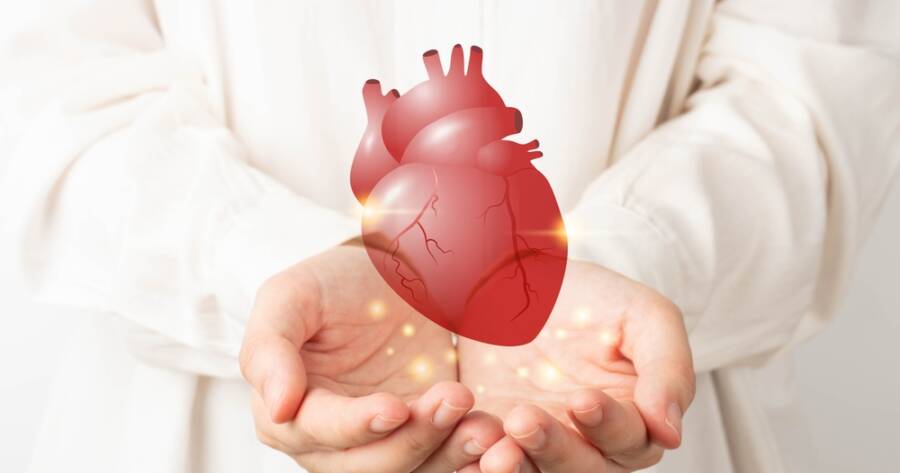Hypertrophic Cardiomyopathy (HCM) is a complex heart condition characterized by an abnormal thickening of the heart muscle. While it can be asymptomatic in some individuals, others may experience a range of signs that warrant medical attention. Early recognition and appropriate management can make a significant difference in living well with this condition. This article explores the key signs of HCM and the various treatments available, offering insights to help individuals make informed decisions about their heart health.
What is Hypertrophic Cardiomyopathy?
Hypertrophic Cardiomyopathy is a genetic condition that primarily affects the heart’s left ventricle, leading to an abnormal thickening of the heart muscle. This thickening can make it harder for the heart to pump blood effectively, potentially causing symptoms or complications over time.
While HCM is often inherited, it can also develop sporadically without a clear family history. It’s important to note that the severity and presentation of HCM vary widely among individuals.
Common Signs and Symptoms of Hypertrophic Cardiomyopathy
Many people with HCM remain asymptomatic, and the condition is sometimes only discovered during routine medical tests. However, for those who do experience symptoms, the following are commonly reported:
1. Shortness of Breath
One of the hallmark signs of HCM is difficulty breathing, particularly during physical activity. The thickened heart muscle may impede blood flow, making it harder for the body to receive adequate oxygen during exertion.
2. Chest Pain or Discomfort
Some individuals experience chest pain, which may feel similar to angina. This pain is often brought on by physical exertion or emotional stress and may subside with rest.
3. Fatigue
Feeling persistently tired or lacking energy can be a sign of HCM. Fatigue often occurs because the heart isn’t efficiently pumping blood to meet the body’s demands.
4. Palpitations
Irregular heartbeats or sensations of fluttering in the chest are common in HCM. These can sometimes indicate arrhythmias, which may require further investigation.
5. Fainting (Syncope)
Dizziness or fainting, especially during exercise or immediately afterward, can be an indicator of HCM. Syncope may occur due to reduced blood flow or abnormal heart rhythms.
6. Swelling in the Legs or Feet
Although less common, fluid retention leading to swelling can occur in advanced cases of HCM. This may indicate heart failure or other complications.
7. Sudden Cardiac Arrest
In rare cases, HCM can lead to sudden cardiac arrest, particularly in young athletes or those with undiagnosed severe forms of the condition. This highlights the importance of routine screening in individuals with a family history of HCM.
Diagnosing Hypertrophic Cardiomyopathy
Proper diagnosis is crucial for managing HCM. If symptoms are present or there’s a family history of the condition, healthcare providers may recommend several diagnostic tests:
- Electrocardiogram (ECG): Detects electrical abnormalities in the heart.
- Echocardiogram: Visualizes the heart’s structure and detects thickening of the heart muscle.
- Cardiac MRI: Offers a detailed view of the heart to assess the severity of HCM.
- Genetic Testing: Helps identify inherited mutations linked to HCM, particularly in families.
Diagnosis often requires a combination of these tests, and ongoing monitoring is essential even for asymptomatic individuals.
Treatment Options for Hypertrophic Cardiomyopathy
There’s no universal cure for HCM, but various treatments aim to manage symptoms, prevent complications, and improve quality of life. The choice of treatment depends on the severity of the condition and the individual’s specific symptoms.
1. Lifestyle Adjustments
Individuals with HCM are often advised to modify their activities to reduce strain on the heart. While complete avoidance of exercise is not always necessary, high-intensity sports and weightlifting may be discouraged. A heart-healthy diet, stress management, and regular follow-ups with a cardiologist are also recommended.
2. Medications
Medications can help manage symptoms and improve heart function:
- Beta-blockers or calcium channel blockers may be prescribed to reduce heart rate and improve blood flow.
- Anti-arrhythmic drugs can be used to address irregular heart rhythms.
- In some cases, blood thinners are recommended to prevent blood clots.
3. Medical Procedures
When symptoms persist despite medication, more invasive treatments may be considered:
- Septal Myectomy: A surgical procedure that removes part of the thickened heart muscle, improving blood flow.
- Alcohol Septal Ablation: A less invasive option where alcohol is injected to shrink the thickened area.
- Implantable Cardioverter-Defibrillator (ICD): Used in individuals at high risk of sudden cardiac arrest, this device monitors heart rhythms and delivers shocks when needed.
4. Emerging Therapies
Ongoing research into gene editing, advanced imaging techniques, and targeted therapies may pave the way for new treatment options. While these are not yet widely available, they hold promise for the future management of HCM.
Living with Hypertrophic Cardiomyopathy
A diagnosis of HCM may feel overwhelming, but with proper management, many individuals lead fulfilling lives. Education about the condition, adherence to medical advice, and open communication with healthcare providers are key. Support groups and counseling may also help patients and families navigate the emotional aspects of living with a chronic heart condition.
Learn More Today!
Hypertrophic Cardiomyopathy is a challenging but manageable condition that affects people differently. By understanding the signs and seeking timely medical advice, individuals can take proactive steps to protect their heart health.
While treatments like medications, lifestyle changes, and procedures can’t guarantee a cure, they offer effective ways to reduce symptoms and improve quality of life. If you or a loved one are concerned about HCM, consulting with a cardiologist is a vital first step toward comprehensive care and better heart health.
